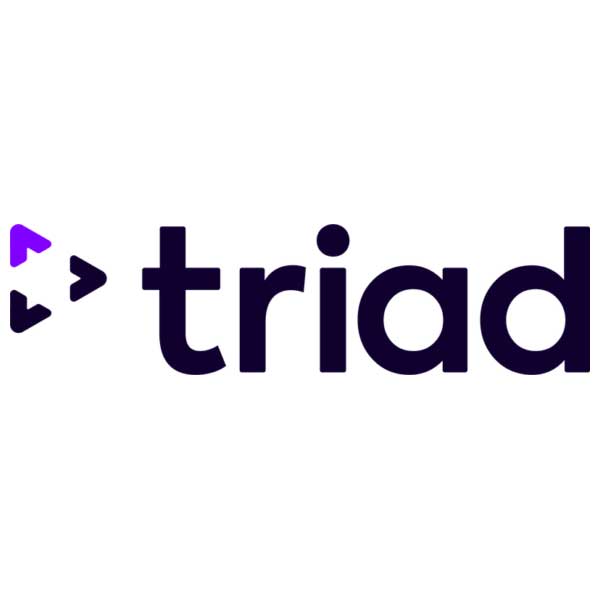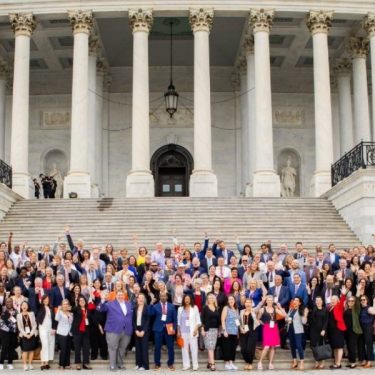We are experiencing a severe and sustained mental health workforce shortage in the United States. (“Shortage” probably doesn’t carry enough of a negative connotation, frankly; the Health Resources and Services Administration [HRSA] prefers the word “crisis.”) And on the current trajectory, it’s likely to get worse, not better: HRSA projects that, by 2037, the “unmet need” for staff in the mental health workforce will range from 37% for addiction counselors to 90% for child, family and school social workers.
Amid this crisis, one population stands out: the ABLE (“all-but-licensure-exam”) group, consisting of those who have completed all education and supervision requirements needed to attain licensure, but have been unable to pass their exam. Although test-makers do not regularly or reliably publish their data, of the 60,000 social work, counseling, marriage and family therapy, and psychology test-takers per year, an estimated 12,000 do not pass. That’s a big number, and a compounding one: The mental health workforce would be approximately 20% larger had those ABLE clinicians entered it.
And those outcomes are not evenly distributed. The Association of Social Work Boards (ASWB), the only mental health test-maker to have released performance data by demographics in the last five years, reports that pass rates for Black test-takers are 30% worse than their White counterparts. Similar disparities exist across location (test-takers from rural universities underperform those from urban ones), age (older test takers underperform younger ones) and English language proficiency (nonfluent English speakers underperform fluent ones).
To address the ABLE population in general, and the uneven outcomes more specifically, there has been a growing movement in some states and professions to offer alternate, non-exam-gated pathways to licensure. These take various forms, all of them well-intentioned but problematic:
- Offer alternate pathways to licensure after a failed attempt at passing a licensure exam.
- Offer alternate pathways to licensure in lieu of an attempt at passing a licensure exam.
- Eliminate licensure exam requirements entirely.
The first option still requires a licensure-track clinician to prepare for and pay for their initial exam attempt, and then to fail, which places both financial and cognitive burdens on the test-taker. (In addition to the cost of the exam itself — which ranges between $230 and $687.50 — it’s hard not to “feel like a failure” when one doesn’t pass an exam, and this approach prices that failure into the process.) These paths also typically include an extensive additional supervisory component (in some cases 3,000 hours, or another year and a half of full-time work).
Removing the failure requirement, as in the second option, alleviates the cost and cognitive burdens, but it still requires additional work under supervision — extending the period when recent alumni from graduate programs are earning wages below that of fully licensed clinicians, all while they carry the same debt and other financial constraints as their classmates and colleagues who passed the licensure exams. Given that both of these alternate paths impact only those who did not pass the exam or who opted not to take it, and given that pass outcomes are not distributed evenly, these paths disproportionately burden clinicians from underrepresented communities, and particularly Black clinicians.
The elimination of exams entirely solves for this disproportionality of cost and other burdens, but it also eliminates an important competency check that safeguards the public. In addition, it would further marginalize the mental health profession from other health care professions, all of which include an exam requirement as part of the licensure process.
Receptivity to test-optional or test-free paths is tepid — even among clinicians themselves. In a 2024 ASWB survey of social workers, 76% of respondents said they “believe that the licensing exam is crucial in maintaining high professional standards,” and 73% reported that they “consider it a mistake to remove the exam requirement.” An even larger majority (82%) rejected the notion of “granting licenses merely based on educational credentials.”
And despite the imbalance in pass rates, there is strong support for the licensure exam among the population defined by the ASWB as “People of Color,” with 75% of those respondents indicating that they “believe the exam is important and should be required.”
If we need more mental health professionals to meet the demands of the U.S. public (and we do), and if we think it is a mistake to eliminate the exam component of licensure (and many people do), what then?
The answer may not be easy, but I think it is simple: We can help more people pass the exam.
There are several considerations here, many of which are interconnected:
- Work with graduate programs to better assess, remediate and prepare their students for licensure exams
- Work with employers of dependently-licensed clinicians to help them support their staff in exam preparation
- Shift the cost burden for exams and exam preparation from individuals to institutions (universities, employers and philanthropic organizations)
That’s what we’re trying to do at Triad (and AATBS, Triad’s flagship education brand). Through our relationships with graduate programs across the country and our Gold Partnership with the National Council for Mental Wellbeing, we are trying to better prepare students for their exams, shift the cost burden for those exams away from them, and provide deep discounts to institutions to help make this investment fit into their budget. And we guarantee success — if one of our students fails an exam, we work with them until they pass.
I’ll close with a comparison (and offer some hope). The pass rate for first-time U.S.-educated test-takers on the National Council Licensure Exam (the NCLEX, the test nurses are required to pass to practice in the U.S.) is 91% — in part because universities are measured based on their graduates’ NCLEX pass rates, so nearly every university offers some form of NCLEX preparation as part of its curriculum. Applying that pass rate to mental health exams would yield something like 6,000 more mental health professionals licensed per year — and with those additional clinicians working in the field, it’s not hard to imagine the impact that would have on the workforce shortage, and on the communities the mental health workforce serves.
About Triad

Triad is a leading provider of education and career resources for mental health and substance use students, professionals, universities and employers. We operate five sub-brands (AATBS, Academic Review, Gerry Grossman Seminars, Taylor Study Method and The Wellness Institute), have been in business since 1976 and are passionate about helping people help people.
Guest Author
CEO
Triad




